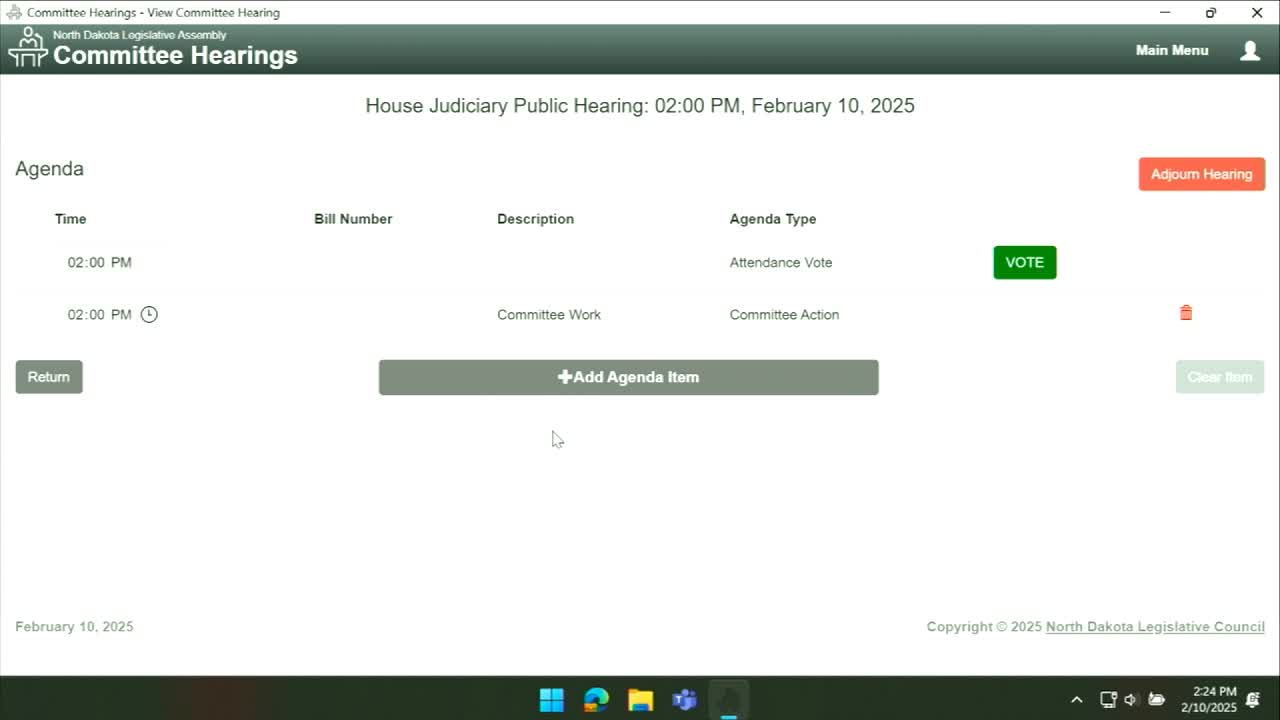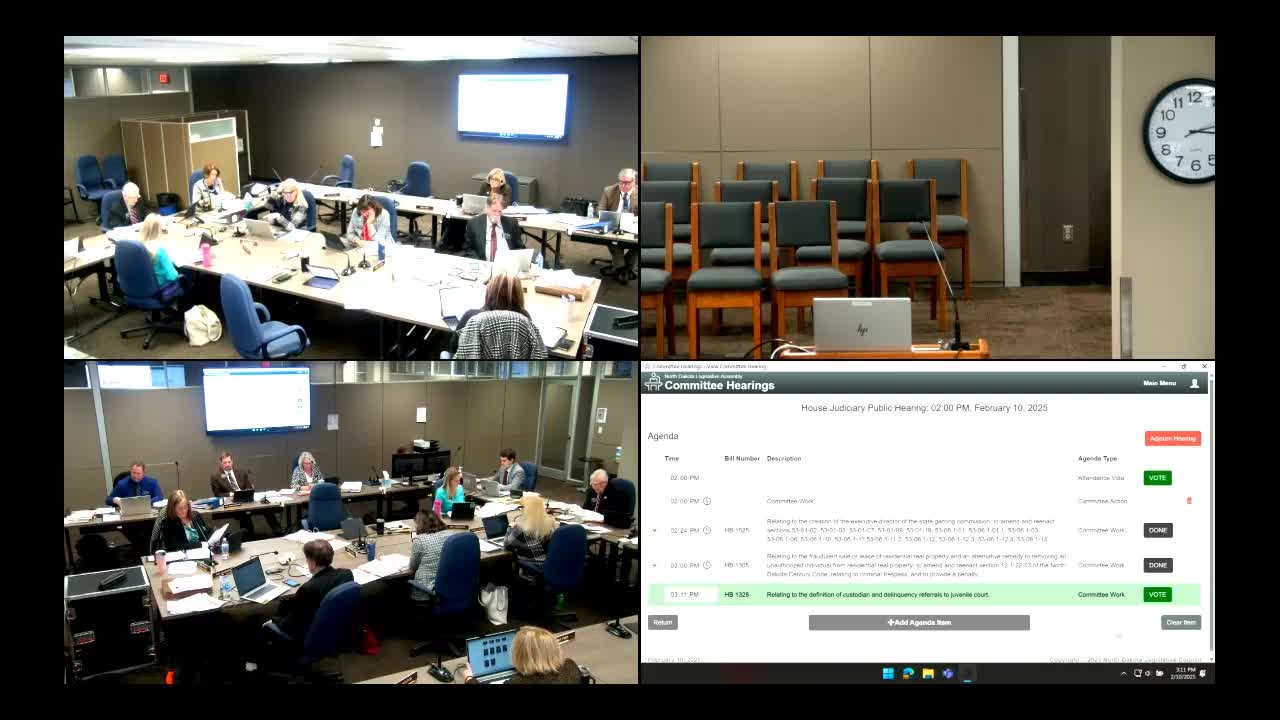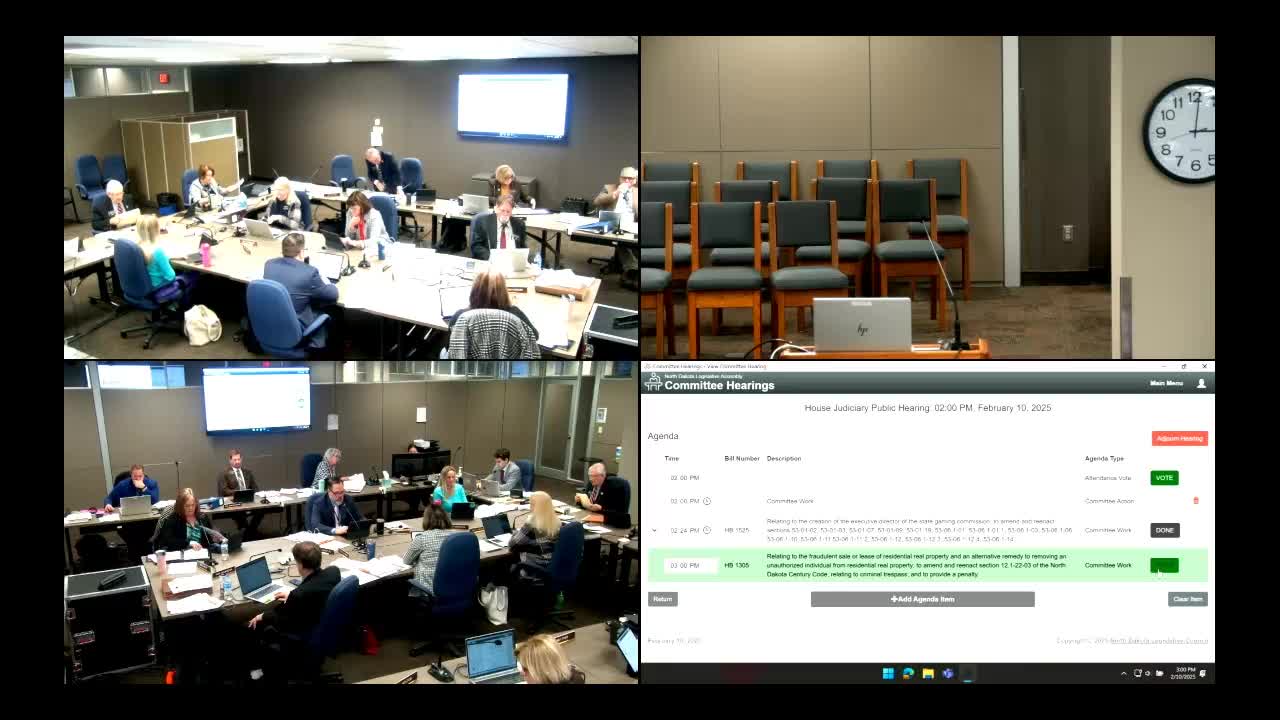Article not found
This article is no longer available. But don't worry—we've gathered other articles that discuss the same topic.

House panel approves move of charity and bar discipline to Gaming Commission with $25,000 appropriation

Committee narrows juvenile referral language; removes proposed 'custodian' expansion and leans on existing CHINS referral process

